During the hearing on Thursday, 64 MPs voted for the commission’s conclusions, 44 were against, and 13 politicians abstained from voting.
The conclusions of the commission were unanimously approved by the Freedom faction of the Seimas, while the Seimas “workers”, social democrats, “peasants” and the Mixed group of Seimas members disagreed (voted against and abstained).
Opinions differed in the ranks of the Seimas conservative faction, the Liberal Movement faction and the democratic faction.
Almost all conservatives and liberals of the Seimas voted for the conclusions, with the exception of parliamentarians Vilija Aleknaitė Abramikienė and Andrius Bagdonas. Almost all the Democrats of the Seimas abstained from voting on the conclusions, with the exception of Vytautas Bakas, who headed the Seimas commission – he voted for the conclusions.
You can check how each member of the Seimas voted here.
During the hearing on Thursday, Seimas “citizen” Dainius Gaižauskas said that the classified investigation material of the commission (which can be viewed by members of the Seimas) contains redundant information about intelligence officers, their identities, and the countries in which they work.
“There is data that we do not have the right to access,” said D. Gaižauskas.
According to him, if the above-mentioned information gets into the public space, there would be a risk for the operations carried out by the VSD and the STT, as well as their undercover agents.
Thus, the politician urged not to consider the conclusions of the Seimas commission and to wait for the General Prosecutor’s Office to comment on everything.
They say that the situation is unprecedented
“We have just listened to a speech in which there was not a single percent of truth”, – this is how Bronislovas Matelis, a member of the parliamentary commission, a conservative of the Seimas, reacted to the words of D. Gaižauskas.
He spoke about the Law on the Protection of Whistleblowers, in which the Seimas seemed to have set safeguards, but VSD reporter Tomas Gailius was said to have suffered anyway: “There was a reorganization, the whistleblower was fired, the identity of the whistleblower was made public and made public not by the commission, but in the media, <... > and no one did any investigation.”
“We have a terrible case that could derail all our work to protect the whistleblower.” If this story ends sadly, I’m sure we won’t get any more serious speakers about corruption or other crimes,” said B. Matelis from the podium of the Seimas.
If the parliament approves the findings, then, according to him, the Whistleblower Protection Law will be amended.
Dovilė Šakalienė, Social Democrat member of the Seimas, member of the Ethics and Procedures Commission, reminded that ethics watchdogs are currently conducting an investigation into possible procedural violations by the rapporteur’s commission. She expressed her surprise that, as this investigation continues, the Seimas is considering the conclusions.
“There are a series of very serious allegations, and for the first time we are seeing such an unprecedented situation, where before the end of the investigation, which we are not delaying <...> and the result will be already on Tuesday, we still have to consider this matter. This raises very serious doubts about the desire to find the truth and the politicization of the process”, noted D. Šakalienė.
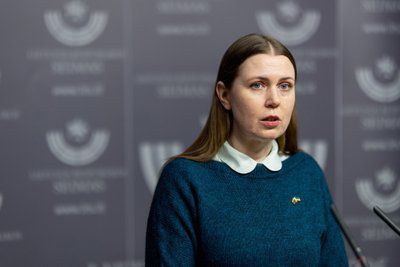
Gentville: The services allowed themselves too much
Speaking about the conclusions of the rapporteur’s commission, Eugenijus Gentvilas, an elder of the Liberal Movement faction of the Seimas, who took to the podium of the Seimas, assessed that President Gitanas Nausėda made mistakes, and the services allowed themselves too much. He said that after accepting the conclusions of the commission, it would be possible to correct such situations.
“Those two parts – discussing the activities of the president and discussing the activities of the special services – allow me to say as a politician with some experience: the president made mistakes in some cases, the services allowed themselves too much in some cases. Accepting the conclusions would allow to correct those situations <...>. We have to say: the services cannot repeat the mistakes that are documented by this investigation. The president or another state politician must not act as stated in the conclusions regarding the act”, commented E. Gentvilas.
“I am voting for these conclusions so that the Seimas preserves the right to conduct investigations and analyze the activities of special services,” he noted.
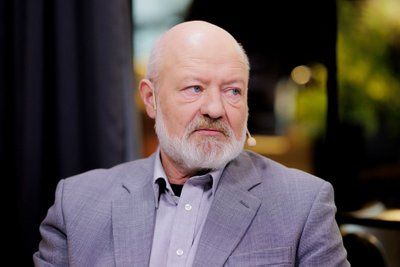
Širinskienė: apparently, some will vote according to faith
Agnė Širinskienė, a member of the mixed group of members of the Seimas, expressed doubts about the validity of the commission’s conclusions and pointed out that only less than 20 parliamentarians tried to get acquainted with the classified investigation materials of the commission.
“The rest, apparently, as I understand it, will vote according to their faith,” said A. Širinskienė.
“Anytime when you read the conclusions, you see that the speaker says that something is “equal” and he can’t even say where he heard that “equal” from, and then in the conclusion you read how terrible it is and what threats are posed to national security, it’s true, apparently , the imagination was fleeting when drawing some conclusions”, commented the member of the Seimas.
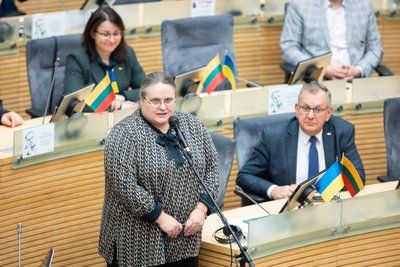
82 members of the Seimas who have the appropriate permits can get acquainted with the classified information of the parliamentary investigation, marked with the vulture “Secrets”. However, before the first vote, only 16 parliamentarians who did not participate in the activities of the Seimas commission were familiar with the classified documents.
For the first time, the story of Tomas Gailius, speaker of the VSD, received the attention of the parliament in 2019. Then the information transmitted by the speaker reached the National Security and Defense Committee of the Seimas (NSGK), but after assessing the situation, the latter admitted that the VSD acted within the limits of its competences.
Assessed that the president is vulnerable
The General Prosecutor’s Office stated that the VSD officer’s report on the actions of the VSD management submitted to Vytautas Baku, chairman of the NSGK at the time, was improperly examined.
The story of the reporter returned to the epicenter of political debates after the publication of the book “The Reporter and the President” by journalists Dovydas Pancerov and Birutė Davidonytė, which reveals the possibly illegal collection of data on private individuals by the VSD during the presidential election campaign.
On March 26, the temporary investigation commission established in the Seimas, to which most of the opposition factions did not delegate their representatives, announced its conclusions. They state that before the 2019 presidential elections, Gitanas Nausėda acted in a non-transparent manner, had exceptional conditions and the opportunity to use VSD resources, which other presidential candidates did not have.
In addition, the commission assessed that G. Nausėda is vulnerable.
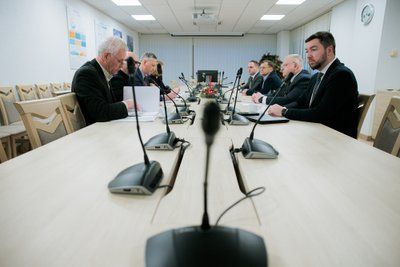
“The relations maintained by the President of the Republic Gitan Nausėda and his entourage with persons who are involved in Belarusian fertilizer business and managers (shareholders) and representatives of business companies make the President vulnerable,” the conclusions read.
They also note that the head of the country actively sought not to apply sanctions to Belarusian fertilizers.
G. Nausėda refused to testify before the Seimas commission and with such actions, in the commission’s assessment, he violated his oath and the Constitution.
Responding to the parliamentary investigation, the commission also made suggestions in its conclusions: The Seimas is urged to consider amendments to the Law on Intelligence Controllers, giving the ombudsman the rights and duty to supervise the legality of activities of institutions performing criminal intelligence.
It is also proposed to strengthen the parliamentary control of VSD and STT, to review the legal regulation of parliamentary control, so that the institutions are obliged to provide all necessary information to the Seimas. Among the recommendations are calls to ensure the role of the Seimas in appointing and dismissing VSD and STT heads and their deputies.
You can read more about the contents of the conclusions here.
Institutions and managers reject the conclusions
G. Nausėda, who was interviewed by journalists earlier about the conclusions, said that he absolutely rejects them. He assessed that it is not true that the conclusions state that the commission was assembled on a political basis and “with the aim of discrediting”.
The head of the country repeated that he did not ask the VSD to collect material about his environment, and commenting on the episode of the aforementioned connections with the Belarusian fertilizer business, G. Nausėda assured that he was fighting “to the blood” over the restrictions on Russia and Belarus.
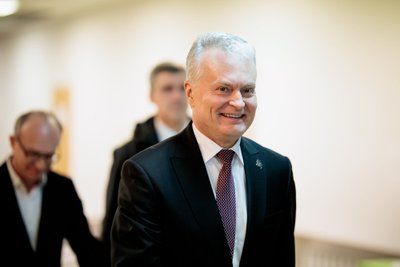
“Both for fertilizers and other goods. To hear such reproaches from the members of the Seimas, who, in the best case, wrote the resolutions, to a person who himself directly participated in the meetings where decisions were made and tried to implement the strictest sanctions procedure, is, to put it mildly, unfair,” said G. Nausėda.
The presidency also commented that G. Nausėda refused to answer the commission’s questions because he did not want to waste the parliamentarians with additional work.
The chief advisor to the president, Kęstutis Budrys, testified that the lawyers of the presidency assessed whether the decision not to answer to the commission violated the Constitution.
“I am convinced that the assessment of the lawyers was appropriate before submitting such an answer to the commission,” commented K. Budrys.
The parliamentary investigation casts a shadow not only on G. Nausėda, VSD and its director, but also on the Special Investigation Service and its head Lin Pernavs, Prosecutor General Evaldos Pašilis.
Institutions and their leaders reject the conclusions of the commission that are extremely critical of them.
The Ethics and Procedures Commission of the Seimas, taking into account the appeal of the Prosecutor General Nida Grunskienė, is clarifying whether the composition and actions of the commission that investigated the information of the VSD reporter were legal and justified.
The advisor of the president appealed to the ethics watchdogs
On Wednesday, on the eve of the meeting, the Seimas ethics watchdogs received another complaint about possible violations in the commission’s work. G. Nausėda’s chief advisor Jarek Niewierowiczius addressed the commission.
“We received one complaint from the presidency. It was signed by J. Niewierowicz, adviser to the president,” on Thursday Elta said Aušrinė Norkienė, chairwoman of the Ethics and Procedures Commission.
“Regarding the activity of the commission itself,” she added, when asked what doubts were raised in the presidential adviser’s appeal.
Mr. Niewierowicz was one of the representatives of the presidential team who testified before the parliamentary commission of inquiry.
An appeal was also received from Seimas member Agnė Širinskienė, informed A. Norkienė.
According to the politician, the member of the Mixed Group is asking for an assessment of possible violations of the Statute of the Seimas, when the parliament did not appoint the rapporteur of the main committee to consider the conclusions of the commission’s investigation after the submission.
Tags: conclusions VSD rapporteurs commission passed step fear sadly












